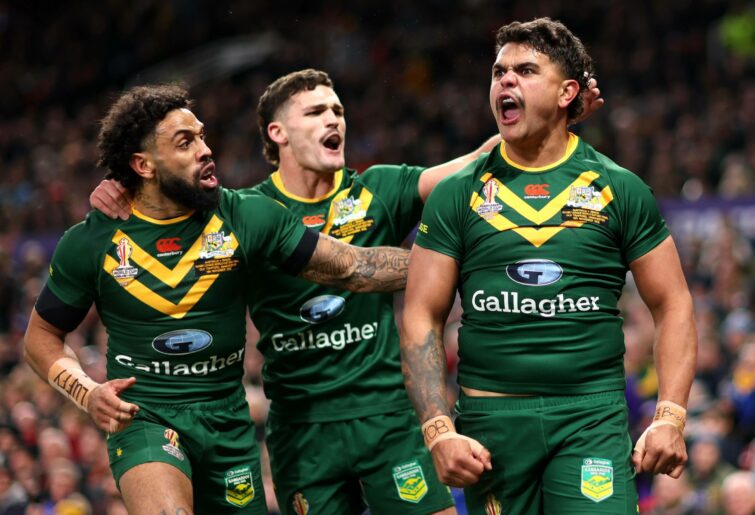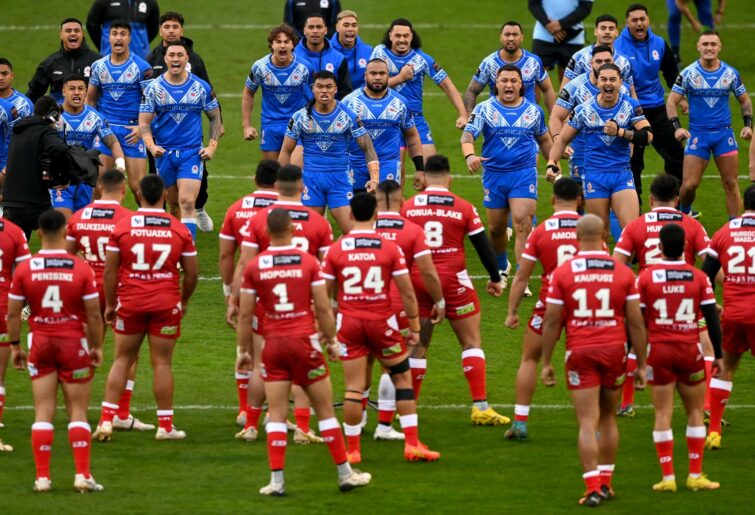As the dust settles on Origin 1 and the perennial debate about international rugby league continues to divide opinion, particularly in Australia, maybe we should really examine all the big questions.
The conclusion is obvious. Rugby league needs an international programme, so how do we get one?
This article is written from a place of some experience in the sport with direct work in the development and expansion of rugby league so you can imagine my motivation – but it doesn’t make me wrong.
Let’s identify the problem first. Rugby League is hugely popular in two states of Australia. It is relatively popular in parts of England and New Zealand, is the national sport of Papua New Guinea and has significant footholds in the Pacific, France and maybe even Serbia.
Outside of that, it is played in around 60 countries each with a recognised national governing body (NGB). They are all, large and small, affiliated at some level to their confederation, Asia Pacific, Europe, the Americas, Middle East Africa (MEA) and then ultimately to International Rugby League (IRL).
IRL is a members’ organisation with full, affiliate and observer members. The membership are the owners and shareholders in the company and therefore benefit from the success and are responsible for the failings. IRL is a not-for-profit organisation in that everything it makes is either invested in activity or given back to shareholders in the form of grants and other support.
Let’s examine the income flow specifically around IRL. The biggest single pot of funding is the World Cup, usually played every four years and basically keeps IRL and the confederations going for that period. In additional, IRL benefits from a 10% levy on gate receipts from senior international matches subject to a threshold so, for example, Nigeria v Ghana is unlikely to meet the minimum threshold and therefore would not pay a levy.
The England v Tonga series in the autumn may add a reasonable amount to the IRL budget and therefore fed through to further development activity.
No-one in their right mind would take a sport seriously without a functioning international governing body. Some people in rugby league think that situation would be ok and others would like to see a reform of IRL to be “fit for purpose”.
My experience tells me that actually, IRL currently functions in a much more recognisable fashion than ever before in its history and would only improve further with a proper budget attached and the ability to do its job correctly.

(Photo by Naomi Baker/Getty Images)
Let’s dispel some myths. IRL does not want to be and could not be like FIFA or the IOC. It does not want to “take power” away from the NRL or anyone else. Healthy thriving NGBs are essential for the growth of the sport globally – there is no power struggle. The NRL, RFL, NZRL etc are all bigger than IRL and should remain so.
The growth of international rugby league and its calendar are not really options but essential for the continued health of the sport everywhere, even if that seems a bit far-fetched to Australia. It is the common-sense decision to develop the sport and its commercial health. It is the single biggest untapped source of major additional income for the minimal disruption – in fact hardly any disruption. It is just plain common business sense!
To fully understand that we need to understand the flow of finance around international rugby league and we can take a live example, England versus Tonga in October 2023. Exactly the same will apply when Australia eventually announce their 2023 plans.
England (The RFL) and Tonga (slightly more complex but you get the picture) agree to play a series and agree the business plan for the sharing of costs, income and profit. They believe that with a TV deal, commercial partners and ticket sales, they can make money which will be shared by the two nations.
Like any other business agreement, they have to go out a sell the product but the market looks pretty buoyant and receptive so it should go well. IRL will sanction that match subject to it meeting certain minimum standards – which is a given for NGBs with such experience as the RFL.
IRL also officially appoints the match officials and will benefit from the levy on the gate. Everyone, in theory wins. Imagine this being done every year and also including New Zealand, Australia, Samoa, PNG, Fiji etc… and you can immediately see that each NGB benefits and IRL benefits.
Some of that cash can go to support Brazil playing Jamaica, Czechia playing Germany and, of course, Nigeria hosting Ghana. Technically all with exactly the same status of senior international match.
Let’s open our eyes further. With a correctly planned international calendar with space for senior international matches and also inter-RLWC tournaments, Oceania Cup, European Cup etc etc owned and operated by the regional confederations, maybe every second year or every fourth year, then fans, commercial partners, governments and broadcasters can understand get involved in the programme with some confidence.

(Photo by Gareth Copley/Getty Images)
Finally in the calendar, the World Cup, every four years can become attractive and be regarded as a reliable, commercially viable and successful project, worthy of investment – who knows.
What is stopping us? Largely ignorance and a total lack of any vision from certain parts of the world – you can fill in your own personal culprits here.
Players – the overwhelming majority want to represent their nation proudly and regularly. They can still finish in good time to take a break and be back in training for their clubs.
Clubs – they should benefit eventually from financial benefits paid for representative players but in the short term, they benefit from increased profile of the sport and access to an enhanced commercial base. I haven’t heard one CEO, Chair or owner who is opposed.
What they are opposed to is the current shambolic and piecemeal organisation thrust upon them, their players and staff.
NGBs – Obviously they are all potentially huge beneficiaries in terms of profile and finance, but there is also some short-term risk as this gets established.
The most important question is kept until last – does it adversely affect Origin? No clearly not, it actually enhances Origin as technically it should be the biggest selection series in the world and feed into the Kangaroo brand – don’t get me started on that one.
It’s criminal that the All Blacks are so big and lucrative (NZ$200million external investment), while the Kangaroos pull in almost nothing.































































































